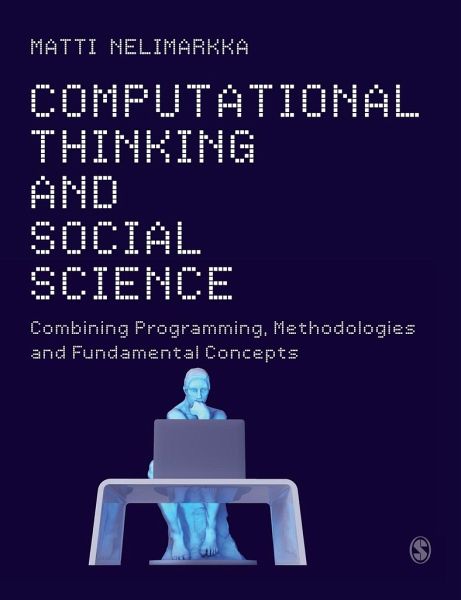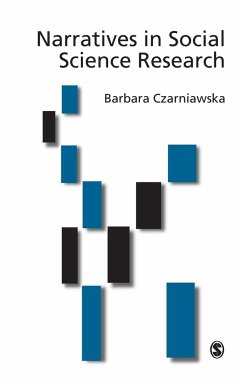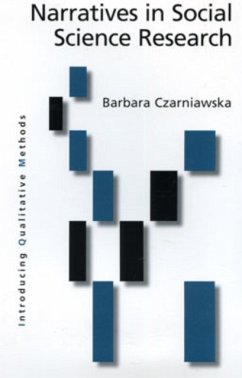
Computational Thinking and Social Science
Combining Programming, Methodologies and Fundamental Concepts
Versandkostenfrei!
Versandfertig in 6-10 Tagen
111,99 €
inkl. MwSt.
Weitere Ausgaben:

PAYBACK Punkte
56 °P sammeln!
Whilst providing a fundamental understanding of computational social science, this book delves into the tools and techniques used to build familiarity with programming and gain context into how, why and when they are introduced. The overall focus is on helping you understand and design computational social science research, alongside delving into hands-on coding and technical instruction.Key features include: Further reading Exercises accompanied by sample code Programming examples in Scratch, Python and R Key concepts Chapter summaries With experience in course design and teaching, Matti Nel...
Whilst providing a fundamental understanding of computational social science, this book delves into the tools and techniques used to build familiarity with programming and gain context into how, why and when they are introduced. The overall focus is on helping you understand and design computational social science research, alongside delving into hands-on coding and technical instruction.
Key features include:
Further reading Exercises accompanied by sample code Programming examples in Scratch, Python and R Key concepts Chapter summaries With experience in course design and teaching, Matti Nelimarkka has a deep understanding of learning techniques within computational social sciences, with the main aim of blending researching, thinking and designing together to gain a grounded foundation for coding, programming, methodologies and key concepts.
Key features include:
Further reading Exercises accompanied by sample code Programming examples in Scratch, Python and R Key concepts Chapter summaries With experience in course design and teaching, Matti Nelimarkka has a deep understanding of learning techniques within computational social sciences, with the main aim of blending researching, thinking and designing together to gain a grounded foundation for coding, programming, methodologies and key concepts.














